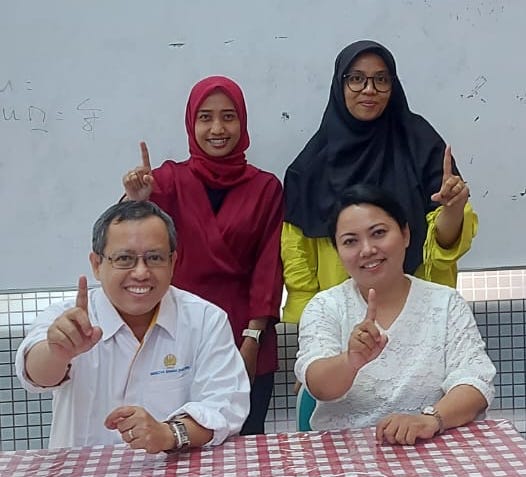Reflection on Research Audit and Community Service (PKM) Activities

Introduction
Research audit and Student Service (PKM) are essential in higher education. Research audits aim to ensure that research activities are carried out in accordance with applicable standards and regulations and to evaluate the quality and effectiveness of research conducted by educational institutions. Meanwhile, PKM is a service carried out by lecturers and students to the community, which aims to apply science and technology to improve community welfare. These two aspects are crucial in ensuring that higher education produces quality graduates and makes a real contribution to society.
Research Audit
A research audit is a systematic process used to evaluate and verify various aspects of research activities in higher education. The primary purpose of these audits is to ensure that ethical standards, appropriate methodologies, and applicable regulations conduct research. Some aspects that are typically audited include:
- Research roadmap for study programs that are suitable for interdisciplinary or multidisciplinary
- An evaluation report on lecturer and student research suitability with the study program research roadmap at the Koorprdi was uploaded to the study program website.
- Research Output Recap
- Recap of the suitability of lecturer and student research titles with study program research roadmap
- Recap of the suitability of lecturer research titles and student final projects with study program research roadmap
- Research Decree, Research Report, Endorsement Sheet
- List of research groups and list of research laboratories
- The relevance of the roadmap report to the research agenda that supports the infrastructure
- Research Decree, Research Report, Endorsement Sheet
- SWOT report the research has been authorized by the sign of Coordinator Program Study and uploaded on the study program website
Research audits also serve as a tool to identify areas that need improvement and to improve the overall quality of research. With audits, educational institutions can ensure that the research conducted meets quality standards and makes a meaningful contribution to science and society
Community Service (PKM)
Student Service (PKM) is a form of the tridharma of higher education activities that aims to apply science and technology directly to the community. PKM activities usually involve lecturers and students who work together to identify problems in the community and find innovative solutions. Some forms of PKM activities include:
- Training and Workshops: Provide training to the public on various topics, such as technology, health, and entrepreneurship
- Community Empowerment: Develop programs to improve community capabilities and independence.
- Consultation and Assistance: Consultation and assistance to small and medium enterprises (SMEs) or other community groups.
- Social Projects: Carry out social projects that aim to improve environmental or infrastructure conditions in an area.
PKM is not only beneficial to the community but also to students. Through PKM, students can apply their college knowledge, develop social and leadership skills, and increase social awareness. In addition, PKM can also be a place for students to innovate and inherently contribute to society.
Conclusion
Research audit and Student Service (PKM) are two components that complement each other in the world of higher education. Research audits ensure that research activities are carried out with high-quality standards and following applicable regulations, while PKM provides opportunities for lecturers and students to contribute directly to society. These two aspects improve the quality of education and ensure that universities make a real contribution to community development. Therefore, educational institutions must sustainably support and develop research audits and PKM activities.